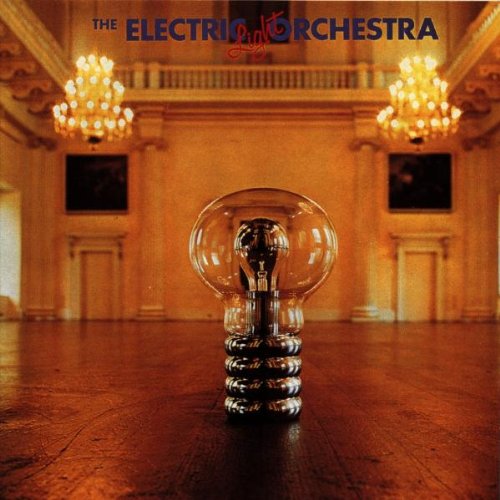
No Answer (1971)

1. 10538 Overture
2. Look at Me Now
3. Nellie Takes Her Bow
4. The Battle of Marston Moor (July 2nd, 1644)
5. 1st Movement (Jumping Biz)
6. Mr. Radio
7. Manhattan Rumble (49th Street Massacre)
8. Queen of the Hours
9. Whisper in the Night
Listening to No Answer, the debut album from Electric Light Orchestra, is a bit like stumbling across a dusty student film by a young Steven Spielberg — flawed, uneven, occasionally baffling, but undeniably brimming with potential. There’s no mistaking it: the execution may be clumsy, but the vision is very much intact. This is the sound of Jeff Lynne and Roy Wood trying to rewire the fundamentals of rock music, string section in one hand, amplifier in the other, with no roadmap and no net.
The band’s origin story is as peculiar as the record itself. ELO wasn’t so much born as it was grafted onto an existing organism. The Move — a successful, if regionally contained, British psych-rock band — essentially morphed into Electric Light Orchestra without fully disbanding. Wood and drummer Bev Bevan remained from the old lineup, and Lynne, newly recruited, brought the spark of a bigger idea: what if rock and classical music didn’t just borrow from one another — what if they merged outright?
The Move, for all intents and purposes, stayed intact just long enough to finance this new experiment. The result was No Answer, a half-finished sketch of what would become the ELO sound — occasionally brilliant, occasionally ridiculous, but never boring.
It’s also the only ELO album where Lynne doesn’t hold total creative control. This one is evenly split between him and Roy Wood, and the contrast is glaring. Lynne’s contributions — 10538 Overture and Mr. Radio among them — are embryonic versions of what would later define the band: pop melodicism wrapped in minor-key grandeur, buoyed by strings and syncopation. Even in this raw state, you can sense the trajectory.
Wood, meanwhile, is operating on a different frequency entirely. His best moment — Whisper in the Night, which closes the album — is a forgotten gem, richly arranged and emotionally grounded. But his other contributions veer wildly off course. The Battle of Marston Moor is the most infamous offender: a spoken-word historical epic about a 17th-century skirmish, delivered in a tone somewhere between Shakespearean stage play and Monty Python sketch. It’s more performance art than song, and it’s no surprise that drummer Bev Bevan sat this one out in protest. You can hardly blame him.
The album’s sonic palette is as scattered as its authorship. Lynne’s Manhattan Rumble (49th Street Massacre) hints at a broader orchestral ambition, one that’s intriguing enough to make you wish he’d pushed further in that direction. Elsewhere, French horns weave their way into arrangements with mixed success — sometimes adding texture, sometimes just adding clutter.
And then there’s the production — or lack thereof. Much of the record sounds like it was recorded in a garage at 3 a.m. with borrowed microphones and a sheet of plywood doubling as a mixing desk. There’s a certain charm in that, but it also means that some of the album’s more delicate flourishes get buried under a haze of murky acoustics and muddy edits.
Even the album’s title is a mistake — literally. When the U.S. label attempted to get the official name from the band’s camp overseas and no one picked up the phone, a secretary jotted down “No Answer” on the call sheet. That scribble became the album’s de facto title in the States. A perfect accident for a record defined by misfires and near-misses.
Still, there’s something admirable about the whole affair. No Answer is ambitious to a fault — uneven, overreaching, and occasionally tone-deaf — but it lays the foundation for what ELO would soon become: a rock band with a symphonic soul, unapologetically theatrical and defiantly melodic. Lynne would tighten the screws in the years ahead, refine the formula, trim the fat. But this is where it started: wild, weird, and wholly original.
Go back to the main page
Go To Next Review